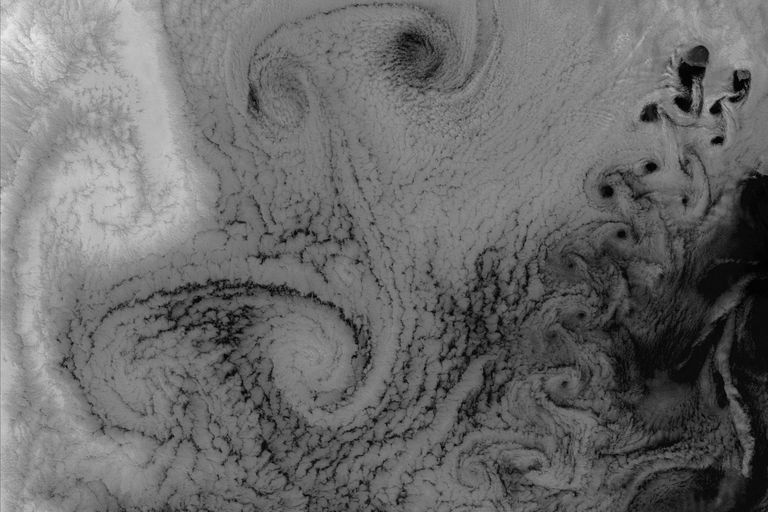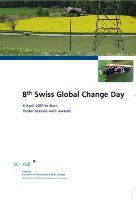8th Swiss Global Change Day - Meeting Report
(et) On 4 April 2007 the eighth Swiss Global Change Day took place in Bern. Every year in spring ProClim-, a forum of the Swiss Academy of Sciences, organizes this event, which addresses the global change research community in Switzerland. About 300 participants took the opportunity to network and to discuss with people from related fields. About 60 posters were presented which showed the range of research activities in Switzerland.

Seven key note speakers presented new findings, highlights and challenges in the broad field of global environmental change research:
Myles Allen from the Oxford University asked whether we were posing the right questions regarding the climate change prediction. Instead of focusing on a particular carbon dioxide concentration in the atmosphere he suggests to frame policies in terms of temperature targets. Myles Allen argues that, in this way, the uncertainty are moved to the atmospheric concentrations required to achieve the temperature.
Pamela Heck from Swiss Re Zurich explains how climate change and the increase in the number of extreme events affect the insurance industry. It may be necessary to rise the premiums in some cases. Furthermore, if extreme events become normal under changing climate conditions, measures other than insurance will have to be taken.
Elinor Ostrom from Indiana University (USA) emphasizes the importance to involve the affected parties in the planning of political actions, which she illustrates on the example of deforestation. When users are genuinely engaged in the decision process, the likelihood of their following the rules is much greater than when an authority simply imposes rules.
Philippe Thalmann from EPF Lausanne provokingly asks whether it makes any sense for Switzerland to reduce its greenhouse gas emissions as they represent less than 0.2% of world emissions. In his view, not only for reasons of responsibility, but also for egoistic economic reasons Switzerland should reduce its greenhouse gas emissions. Thus, we could profit, for instance, from the export of energy-efficient technologies into other industrialized countries and emerging markets.
Michael R. Raupach from CSIRO Earth Observatory Centre, Australia, warns that the uptake of CO2 by land and ocean will decrease. At the same time CO2 emissions from fossil-fuel burning and industrial processes have been accelerating at the global scale, with their growth rate increasing from 1.1% per year for 1990-1999 to over 3% per year for 2000-2004. Not one region on this planet is yet decarbonising its energy supply.
Heinz Wanner from the University of Bern shows the natural variability of the climate for the last 6000 years. This period is of particular interest because natural forcing factors dominated until the 19th century. Knowledge about this period has much improved and is important for the understanding of the climate system.
Wolfgang Nentwig from the University of Bern focuses on the increasing number of alien plant and animal species in Europe. The main reason is globalization with is continuous transport of people and goods all over the world. Alien species may alter the composition of communities and of ecosystem functions. They cause ecological as well as economical costs.
In the poster session the best posters in each of the fields of WCRP, IGBP, IHDP and DIVERSITAS were selected by a jury and honored with a travel award of SFr. 1000.- each. The following posters were awarded:
WCRP (awards were sponsored by the ACP, the Commission for Atmospheric Chemistry and Physics):
- Erich Fischer, ETH Zürich: Contribution of land-atmosphere coupling to recent European summer heatwaves
- Adrian Schilt, Universität Bern: Extended atmospheric CH4 record from the EPICA Dronning Maud Land ice core
IGBP (awards were sponsored by the Swiss IGBP Committee):
- Adrian Kammer, WSL: Upward-shifting treelines change soil organic matter dynamics in the Ural mountains
- Jan-Hendrik May, Universität Bern: Paleosol-sediment-sequences at Cabezas: a «showcase» for Late Quaternary environmental change in Eastern Bolivia
IHDP (awards were sponsored by the Swiss IHDP Committee):
- Sabine Perch-Nielsen, ETH Zürich: The Vulnerability of the Tourism Sector to Climate Change
- Susanne Bruppacher, Universität Bern: Diffusion Dynamics of Energy Efficient Buildings (DeeB)
DIVERSITAS (award was sponsored by the Swiss Biodiversity Forum, scnat):
- Markus Hohl, FORNAT: Effects of land use and climate change on diurnal Lepidoptera communities in semi-natural grasslands for the central Swiss Alps
ACP Award
The Commission for Atmospheric Chemistry and Physics (ACP) awarded two outstanding contributions to the atmospheric sciences. The award was co-sponsored by the BLS Railways, Spiez. The award was given to
- Markus Kalberer for his work on the chemical reactivity and properties of secondary organic aerosols
- Daniel Schaub for his satellite observations on the tropospheric NO2 column for the analysis of air pollution on a regional scale.


